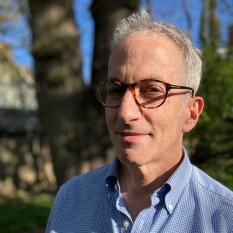Michael Loewenberg

Ph.D., California Institute of Technology
Interests:
Loewenberg's research interest consist of Dynamic Complex fluids, which are soft condensed materials (such as emulsions, foams, polymers, colloidal suspensions, and liquid crystals) with equilibrium microstructures that are readily distorted by an imposed flow or field. The rich dynamical behavior of complex fluids arises from the interplay of intrinsic microstructural relaxation rates (e.g., recoiling of polymer chains, relaxation of drop-shapes, redistribution of surfactant on a fluid interface) and comparable extrinsic rates, such as an imposed shear rate, or oscillation frequency.
Complex fluids are involved in the processing and transport of paints, inks, coatings, lubricants, detergents, polymers, polymer blends, pharmaceutical reagents, and processed foods. Enhanced oil recovery and soil and groundwater remediation often involve complex fluids. An understanding of complex fluid dynamics is needed for the design of microfluidic devices, drug delivery systems, and protein separation and crystallization processes.
Engineering applications of complex fluids require the prediction or control of its visco elastic dynamical behavior (rheology) or the stability and evolution of its microstructure. For example, the control of a coating flow may require a material that flows when subjected to a sufficient shearing stress but not to a moderate buoyancy stress. In other applications, high viscosity fluids are efficiently transported by dispersing them in a low viscosity fluid. Blood flow in the micro-circulation depends on the deformation-induced migration of red cell away from micro vessel walls to form a cell-free plasma layer and a particle-dense central core which undergoes plug-like flow with much lower resistance than that corresponding to a uniform distribution of red cells. Certain diseases (e.g., diabetes) stiffen red cell membranes, which suppresses red cell migration and seriously increases the work-load on the heart.
Selected Awards & Honors:
- American Physical Society, Andreas Acrivos Dissertation Prize in Fluid Dynamics awarded to Vittorio Cristini (doctoral student) “for important theoretical and numerical contributions to the description and understanding of drop dynamics and breakup in laminar and turbulent flows” (2000)
- Presidential Early Career Award for Scientists and Engineers (PECASE) for “novel research on viscous multiphase fluids leading to the development of predictive models for use in the chemical and manufacturing industries” (1999)
- CAREER Award, National Science Foundation (1996)

